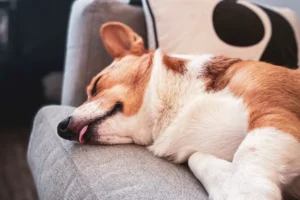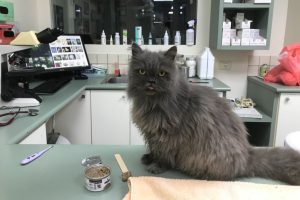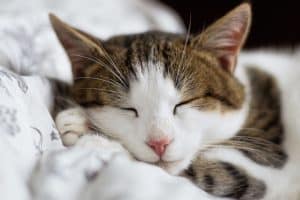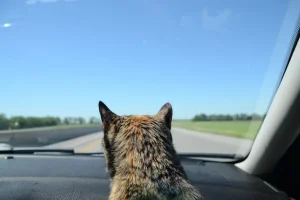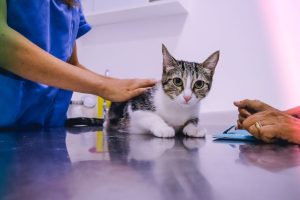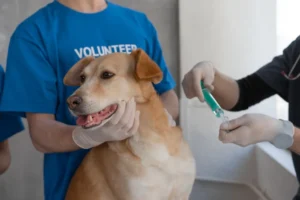Is your cat refusing to eat after getting vaccinated? It can be concerning when your furry friend suddenly loses their appetite, but there could be a logical explanation for this behavior. Let’s explore the reasons why your cat may not be eating after receiving their shots.
Answer:
If your cat is not eating after vaccination, it could be due to stress, temporary side effects, or a mild reaction to the vaccine. In most cases, this is nothing to worry about, and your cat should start eating normally within a day or two.
Timing of Vaccination
When it comes to your cat not eating after vaccination, the timing of the vaccine relative to mealtime could be a crucial factor. If your cat received the vaccination close to its usual mealtime, it might not feel as hungry or interested in food. Try offering your cat some tasty treats or a different type of food at a different time to see if its appetite improves.
Additionally, closely monitor your cat’s eating habits for the next 24-48 hours after vaccination. If you notice a significant decrease in appetite, consult your veterinarian for further guidance. Remember, every cat is unique, so what works for one may not work for another.
Stress and Anxiety
Stress and anxiety from the vet visit and vaccination process can significantly impact your cat’s eating habits. Cats are creatures of habit, and any disruption to their routine can cause them to feel anxious or uneasy. If your cat is not eating after vaccination, it could be a sign of stress.
To help alleviate your cat’s stress, create a quiet and safe space for it to relax after returning from the vet. Provide comforting items such as blankets or toys to help your cat feel secure. In some cases, your veterinarian may recommend natural calming remedies or supplements to help your cat relax.
Remember, patience and understanding are key when dealing with a stressed or anxious cat. Give your feline friend some time to adjust and be there to provide support and comfort. If the issue persists, don’t hesitate to seek professional advice.
Additional Unique Insight : Some cats may experience side effects from vaccinations, such as soreness at the injection site or mild fever. These physical discomforts can also contribute to a decrease in appetite. Keep an eye on any signs of discomfort and consult your vet if you have any concerns.
Remember, your cat’s well-being is a top priority, and being attentive to any changes in its behavior or eating habits is essential in ensuring its health and happiness.
Side Effects
Vaccinations can sometimes lead to common side effects in cats, such as lethargy, fever, and loss of appetite. These side effects are typically mild and temporary, lasting 24 to 48 hours. If your cat is not eating after vaccination, it could be due to these side effects. It’s essential to monitor your cat closely during this time and ensure they have access to fresh water. Encourage your cat to eat by offering their favorite foods, warming them slightly to enhance aroma, or providing tasty treats. If your cat’s appetite does not improve after 48 hours, or if they show other concerning symptoms, contact your veterinarian for further guidance.
Medical Concerns
While loss of appetite after vaccination is often due to temporary side effects, there could be underlying medical concerns causing your cat to not eat. Common issues unrelated to vaccination that may affect appetite include dental problems, kidney disease, or infections. If your cat continues to refuse food beyond the typical post-vaccination period, it’s crucial to observe for other symptoms, such as vomiting, diarrhea, or lethargy. Schedule a veterinary visit promptly to rule out any serious medical conditions that may be impacting your cat’s appetite. Your veterinarian can provide a thorough examination, recommend necessary tests, and develop an appropriate treatment plan tailored to your cat’s needs.
- Ensure your cat has access to clean water at all times.
- Monitor their litter box for any changes in urination or defecation patterns.
- Offer wet food to entice your cat to eat, as it can be more appealing and easier to consume.
- Keep a log of your cat’s eating habits and any concerning symptoms to share with your veterinarian.
- Avoid forcing your cat to eat if they are not interested, as it can cause further stress and reluctance to eat.
For more information on feline vaccination guidelines and common side effects, you can refer to the American Association of Feline Practitioners website.
Encouraging Eating
If your cat is not eating after vaccination, it may be helpful to encourage appetite in gentle ways. Try offering your furry friend some tasty treats to entice them to eat. Hand-feeding can also be a great way to show your cat that food is safe and delicious. Remember to be patient and understanding during this time, as your cat may just need a little extra TLC to start eating again.
Monitoring Symptoms
While it’s normal for a cat to have a decreased appetite after vaccination, prolonged refusal to eat can be a cause for concern. If your cat continues to avoid food for more than 24 hours after vaccination, it’s essential to contact your vet for guidance. Your vet can assess your cat’s overall health and determine if further action is needed to address the issue. Keeping a close eye on your cat’s behavior and appetite is crucial in ensuring their well-being. Remember, your vet is there to help, so never hesitate to reach out if you have any concerns.
Recovery Timeline
After receiving vaccinations, your cat may experience a temporary loss of appetite. Typically, this should only last for a day or two. By day three post-vaccination, your cat should start eating normally again. If your cat continues to refuse food after this timeframe, it’s important to contact your veterinarian for further advice.
Interesting Fact
Cats can exhibit different behaviors after vaccinations, including being more affectionate or seeking extra attention. This is their way of seeking comfort and reassurance after experiencing something unfamiliar or potentially uncomfortable. So, if your cat becomes more clingy or vocal post-vaccination, it might simply be seeking some extra love and care from you.
Additional Insight: Some cats may also experience mild soreness at the injection site after vaccinations, which can affect their appetite temporarily. Providing a warm compress or gentle massage at the area can help alleviate any discomfort and encourage your cat to eat normally again.
Alex, a passionate animal lover, has experience in training and understanding animal behavior. As a proud pet parent to two dogs and three cats, he founded AnimalReport.net to share insights from animal experts and expand his knowledge of the animal kingdom.

